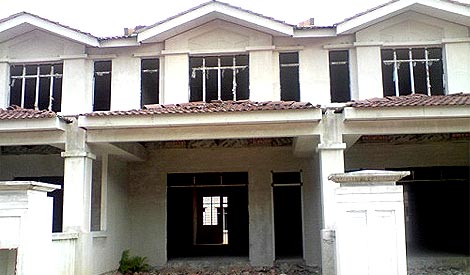LETTER | For clarity, sometimes housing developers need more time beyond the mutually agreed dateline as documented in the sale and purchase agreement (SPA).
They would seek the regulator (JPN) approval to extend the mutually agreed dateline (EOT) using the provisions in the Housing Development Act (HDA118) and also the power of the minister.
In the past, JPN approved several applications and the JPN decision was subsequently challenged in court.
The Federal Court on Nov 26, 2019, in Ang Ming Lee & Ors v Menteri Kesejahteraan Bandar, Perumahan dan Kerajaan Tempatan (KPKT) & Anor and other appeals (2020) 1 CLJ 162 (Ang Ming Lee case) reaffirmed that the regulator decision is in contradiction of the law and the mutually agreed and signed SPA. A good explanation of the case can be read here.
With EOT approval, the developer is not required to pay liquidated ascertained damages (LAD) to the purchaser.
Several aspects of EOT must be looked at. The developer argues that they need more time and EOT because they want to ensure they have enough cash flow to complete the project.
In effect, an EOT applicant is “threatening” the regulator that if they don’t get the EOT, they will abandon the project and this will be a burden to the purchasers and a headache to KPKT.
The decision on EOT has no immediate financial impact on the developer at the time of application. This will not help the developer's cash flow liquidity to complete the project.
The financial impact to the developer is only appreciated after the vacant position (VP) has been obtained, ie through a waiver of LAD payment which will enhance the developer's financials.
With EOT approval, JPN is essentially helping the developer to earn their profits and ignoring purchasers' legal rights. This, in essence, is a “conflict of interest” and to some extent “wrongful/abuse of power”. It is not purely a legal or contract matter.
More appropriately, it is power corruption as the decision made will result in the purchasers losing their rights and the applicant (developer) gaining from it.
While the courts have addressed the legality aspect, one must look at this matter from morality and professionalism aspects. The appropriate regulatory action/decision should have been:
EOT application should be filed in after the issuance of VP.
The regulator should direct the developer's concern to negotiate with the purchasers to find a mutually beneficial solution after VP has been obtained. If no consensus is reached, the developer brings the matter to the attention of the regulator.
The regulator must do a detailed independent financial audit on the developer and its parent company/key stakeholder before coming to a decision.
While the negotiation is ongoing, the regulator is responsible to take steps to protect the purchaser's interest as it is provided in the law.
In the past cases of EOT applications, the above steps have not been taken. It raises the question of what motivates the regulator/minister to approve such a request.
Morally the regulator must issue a letter of explanation to all the affected purchases through public notices based on its decision.
Any attempt to introduce a variation of the EOT in amending the laws and the SPA would be unfair and unprofessional, especially if it is not supported by a balanced regulation.
Ethically and legally it is wrong because the Federal Court has made a decision. In this aspect, we support the National House Buyers Association's views.
When it comes to EOT, we cannot leave such decisions to one or two people in power as it will encourage corruption and malpractices and destroy the good name of the ministry.
Neutrality and safeguarding of public interest are of utmost importance.
The writer is the chairperson of Victims Malaysia.
The views expressed here are those of the author/contributor and do not necessarily represent the views of Malaysiakini.





